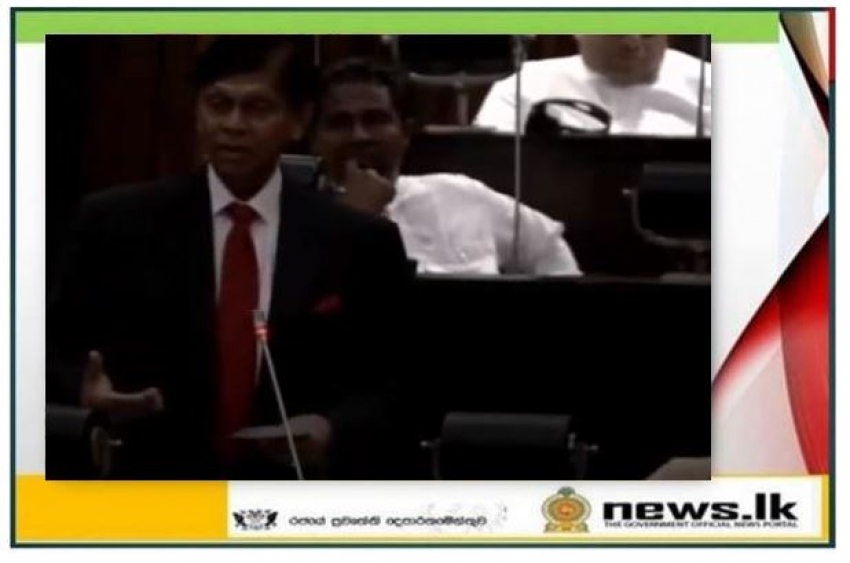Joining the debate on the Vote on Account, told Parliament yesterday that the country’s debt burden rose to Rs. 1.772 trillion as a result of the depreciation of the rupee.
He said that the country’s debt burden rose significantly during the past five years as a result of it.
Cabraal acknowledged that the Rs. 987 billion allocated for recurring expenses in the Vote on Account, Rs. 334 billion for Capital expenses and 423 billion for the repayment of loans is a colossal amount, adding that this is perhaps why the Opposition thinks the government would not be able to manage it. “Even during the war when the country was facing huge challenges, certain opposition members felt the government would fail. However, their expectations were foiled back then and even in this occasion, despite the opposition MPs expecting the government to fail, they will face the same disappointment,” Cabraal noted.
He said that the government had managed and controlled the Covid pandemic very effectively. He assured the people that the government would manage the country’s economy in the same manner, and take it on a path of progress and development despite the challenges before them.
Responding to allegations that the economic development rate had dropped significantly during this year, he said that from 2006 to 2014 the country’s economic growth rate stood at 6.4 percent on average which was never witnessed before. “However, under the Good Governance regime, during the past five years the economic growth rate dropped to 3.7 percent on average. Apart from that in 2019 that economic growth rate dropped further to 2.3 percent, which is the lowest since the open economy was adopted with the exception of one year.
The per capita income after 20 years fell last year by $ 227, which is clearly evident in the Central Bank records. On the contrary in 2006 the per capita income rose by $181 in 2007 - $ 191, in 2008- $397, in 2009- $ 43, in 2010- $ 690, in 2011- $ 381, in 2012- $226, in 2013- $ 258, in 2014 - $ 210. The economy which rose by over $ 200 up until 2014 dropped drastically thereafter during the Good Governance Regime. No matter what they have to say now, there is statistical proof to prove them wrong.”
Cabraal warned the Opposition that all this time they had levelled allegations against the government but was never challenged. “I am a former Central Bank Governor with over 9 years experience and the opposition can be assured that I intend to challenge their allegations in the future.
He added that by the end of 2005 the country’s debt burden stood at 91% compared to the country’s GDP. “But, infrastructure development was done and a war was fought and having faced all the challenges both locally and internationally, by the end of 2014 that debt burden was brought down to 72%. However, during the past five years despite not having to face any such challenges, we witnessed the debt burden grow continuously.
However, it was under the previous government that the debt continued to grow without having to face any adversity,” he noted.
Further in 2014, he said that the interest rates stood at single digits and investments poured in based on these low interest rates. “However, since 2015 the interest rates were increased unnecessarily. Due to the Treasury Bond scam alone the interest rates increased by 3%. As a result the amount due to be paid on our borrowings increased each year. The total interest cost almost doubled in just five years. So the entire structure of the debt servicing was put into serious stress as a result.”
Cabraal noted that under the previous regime unemployment had dropped to over 200,000 despite their promises to create 1 million jobs. However, he said that despite the Covid- 19 pandemic and its set-backs the government will not forsake the people and will continue to support the people and grant them employment. “We expect a ‘V’ shaped recovery which is a rapid economic development strategy which is already underway,” he assured.




















